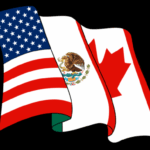European Commission President Ursula von der Leyen has introduced a comprehensive five-part strategy aimed at mobilizing approximately 800 billion euros ($842 billion) to enhance Europe’s defense capabilities and provide “immediate” military assistance to Ukraine following the suspension of aid by the United States.
“In this new era, we must act decisively,” the president stated in a letter addressed to the 27 leaders of the European Union on Tuesday, just two days prior to a summit focused on reinforcing collective action regarding Ukraine and ensuring Europe’s long-term security in Brussels. “Europe is confronted with a clear and immediate threat of a magnitude unprecedented in our lifetimes,” she emphasized.
European leaders are facing significant pressure to boost defense expenditures, particularly in light of former President Donald Trump’s potential return to power, which has served as a stark reminder that reliance on Washington is no longer a viable strategy. The proposed joint borrowing is intended to support the development of pan-European capabilities, including air and missile defense systems, artillery, missiles and ammunition, drones, anti-drone technologies, as well as addressing various needs ranging from cyber defense to military mobility, according to the European Commission.
Von der Leyen has put forth a proposal for a new collective EU borrowing initiative amounting to 150 billion euros ($158 billion) aimed at providing loans to EU governments for defense purposes, as part of a broader financing strategy. While she did not specify a detailed timeline, she emphasized the necessity for increased spending “urgently now but also over a longer period of time throughout this decade.”
“Europe is prepared to take on its responsibilities,” von der Leyen stated. “We will maintain close collaboration with our NATO partners. This is a pivotal moment for Europe, and we are ready to enhance our efforts.”
This announcement followed shortly after Trump called for a halt on military assistance to Ukraine amid his ongoing disagreements with Ukrainian President Volodymyr Zelenskyy from the previous week. Trump has also suggested that NATO’s European members should allocate 5 percent of their gross domestic product (GDP) to defense—a target that no NATO member, including the United States, currently meets.
For many years, EU countries have been hesitant to increase defense spending, relying instead on the US nuclear umbrella in the context of a sluggish economy. The new proposal would compel EU member states to significantly raise their military expenditures, which currently stand at less than 2 percent of their GDP.
NATO Secretary-General Mark Rutte has urged member states to aim for an increase to over 3 percent as swiftly as possible.






